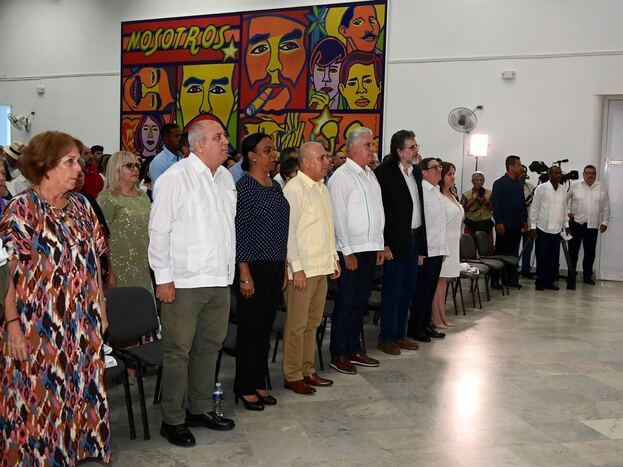
14ymedio, Juan Izquierdo, Havana, April 27, 2024 — After 65 years operating as a kind of second ministry of culture, Casa de las Américas longs for the time when the institution was more powerful and influenced the cultural debates of the continent. On the eve of the anniversary, its president, cultural commissioner Abel Prieto, regrets the lack of “coherence” of the institution and assures that “the amount of crazy things full of lies” that are said about the Island’s regime do it “damage.”
Founded just four months after Fidel Castro’s arrival in Havana in 1959, Casa de las Américas emerged with a declared vocation: to take advantage of the intellectual enthusiasm caused by the “beards” to attract Latin American writers to the Island. The success was total. From promising young people like Ricardo Piglia to figures of the stature of Miguel Ángel Asturias, they passed through the institution or aspired to its literary prize.
Now, Prieto invokes the controversies that marked the first decades of Casa de las Américas, such as the emergence of the magazine Mundo Nuevo – emblem of the Latin American boom and under the direction, from 1966 to 1971, of the Uruguayan critic Emir Rodríguez Monegal – about which he states that it was “designed, built and launched as a counterweight to our magazine Casa de las Américas.”
Prieto invokes the controversies that marked the first decades of Casa de las Américas, such as the emergence of the magazine ’Mundo Nuevo’
The former Minister of Culture attributes to the United States multiple “traps”, “storms” and “manipulations” to sink the institution. He speaks with fury about the Rómulo Gallegos prize, saying “it is founded to oppose the Casa de las Américas prize,” although he does not mention that the regimes of Hugo Chávez and Castro ended up hijacking it. In 2000, invited to be on the jury for the Rómulo Gallegos prize, the novelist Roberto Bolaño denounced that the “chavista” methods of the organizers – who “designated” the politically convenient winner – were already identical to those of Havana in the 60s.
“The Casa always has an answer,” Granma celebrates in its interview with Prieto. The commissioner nods, but insists that everything in today’s world leans “to the right,” because “the Yankees have dedicated a lot of money” to preventing the cultural work of the Island. “At the center of all those controversies was the disp


